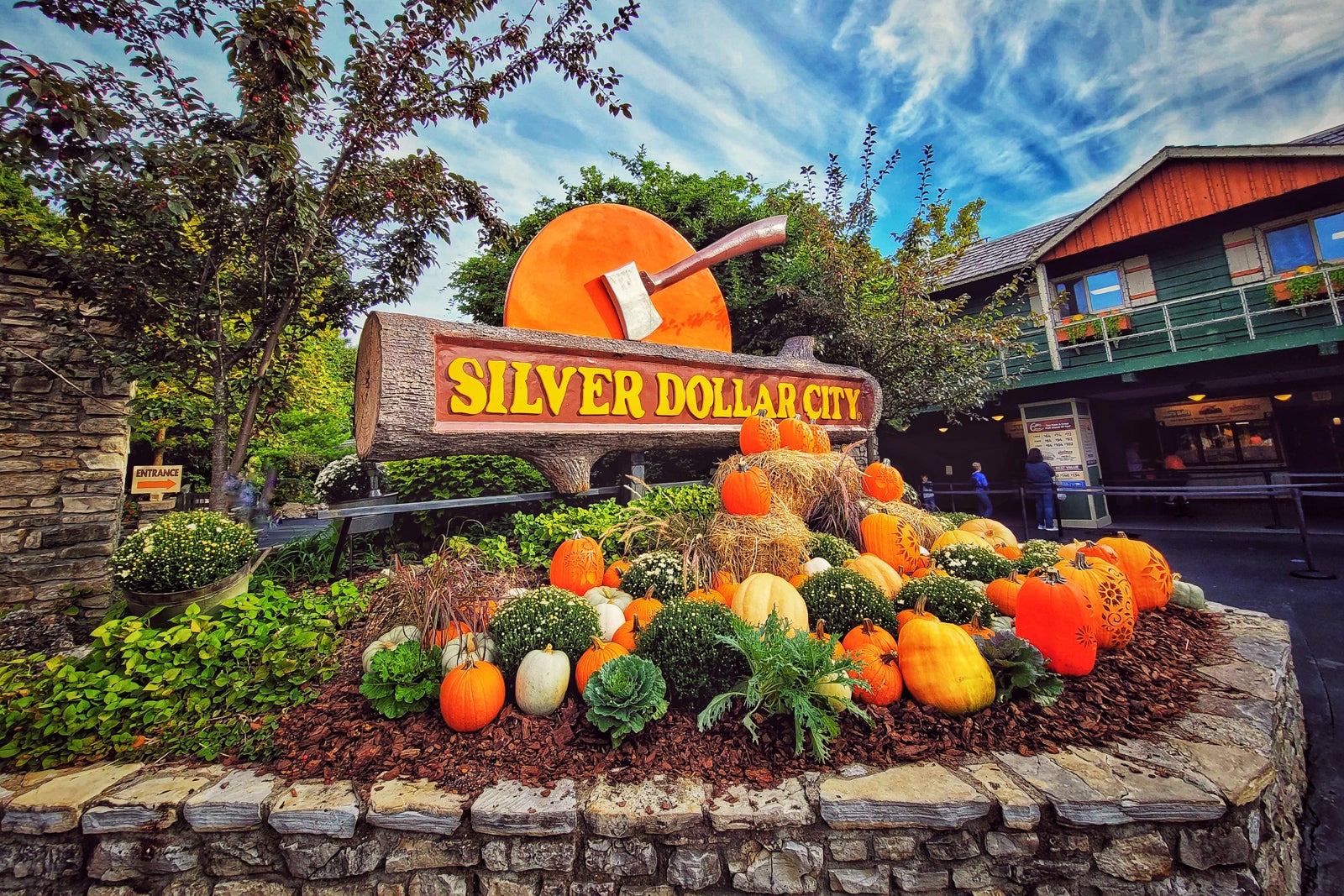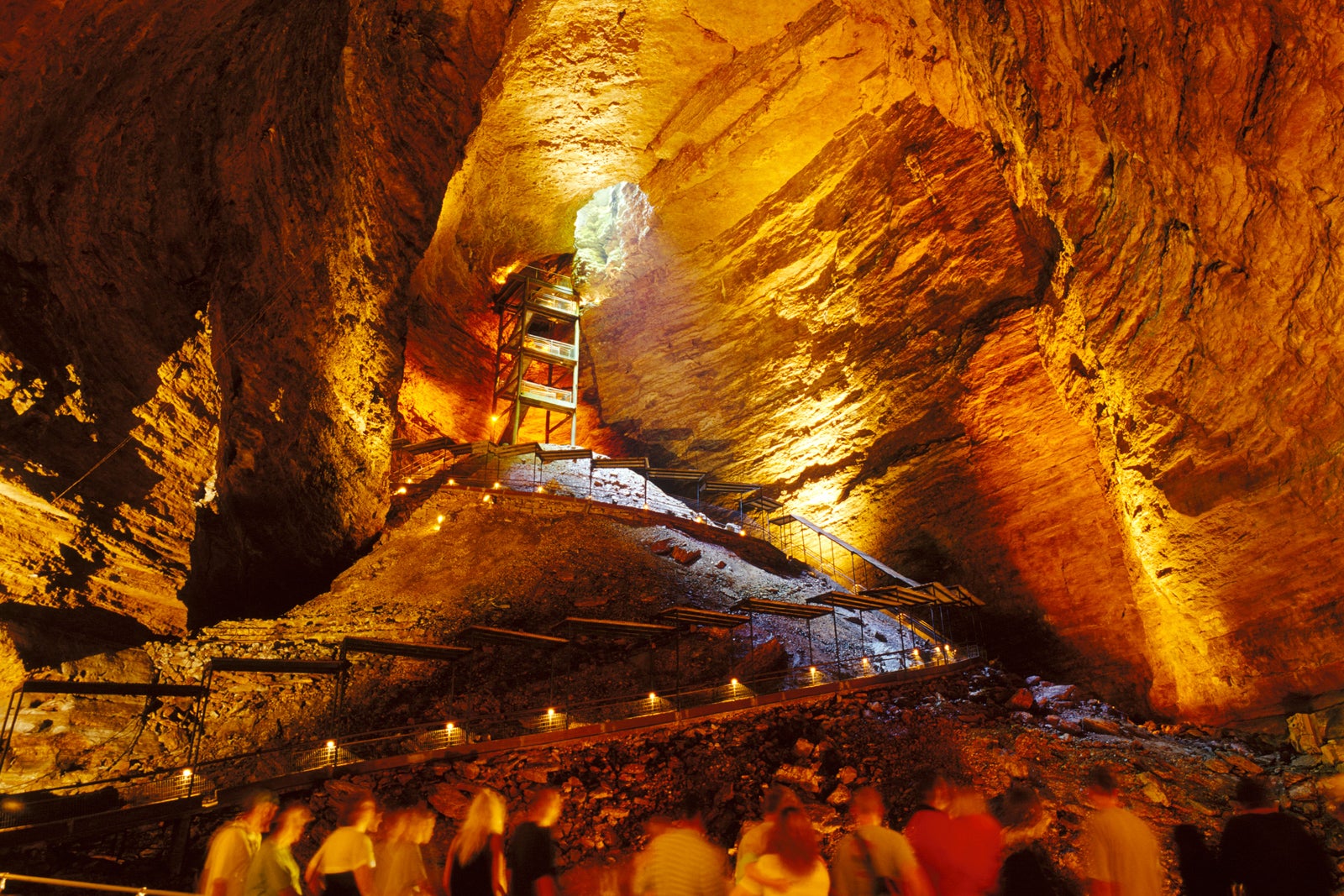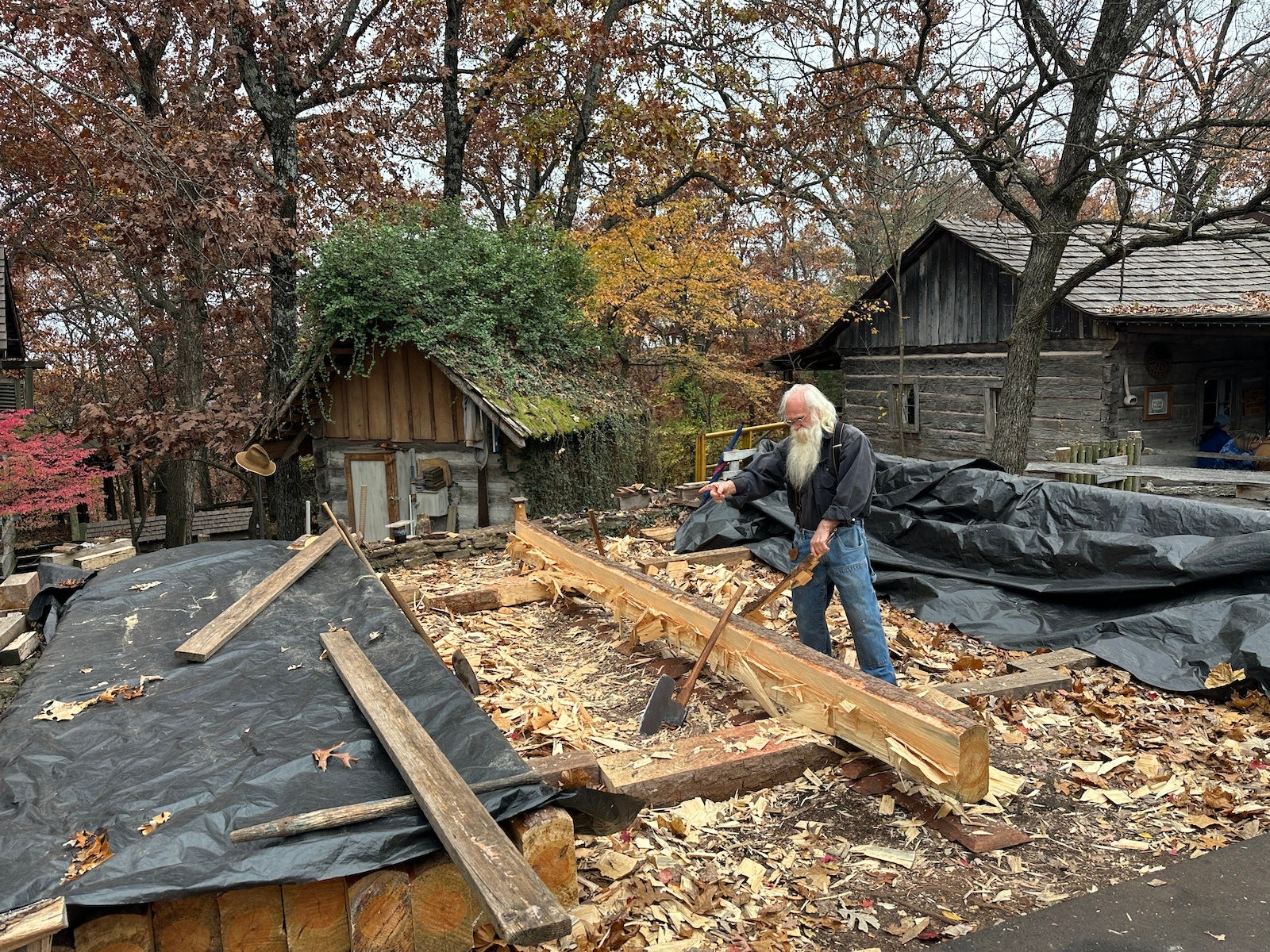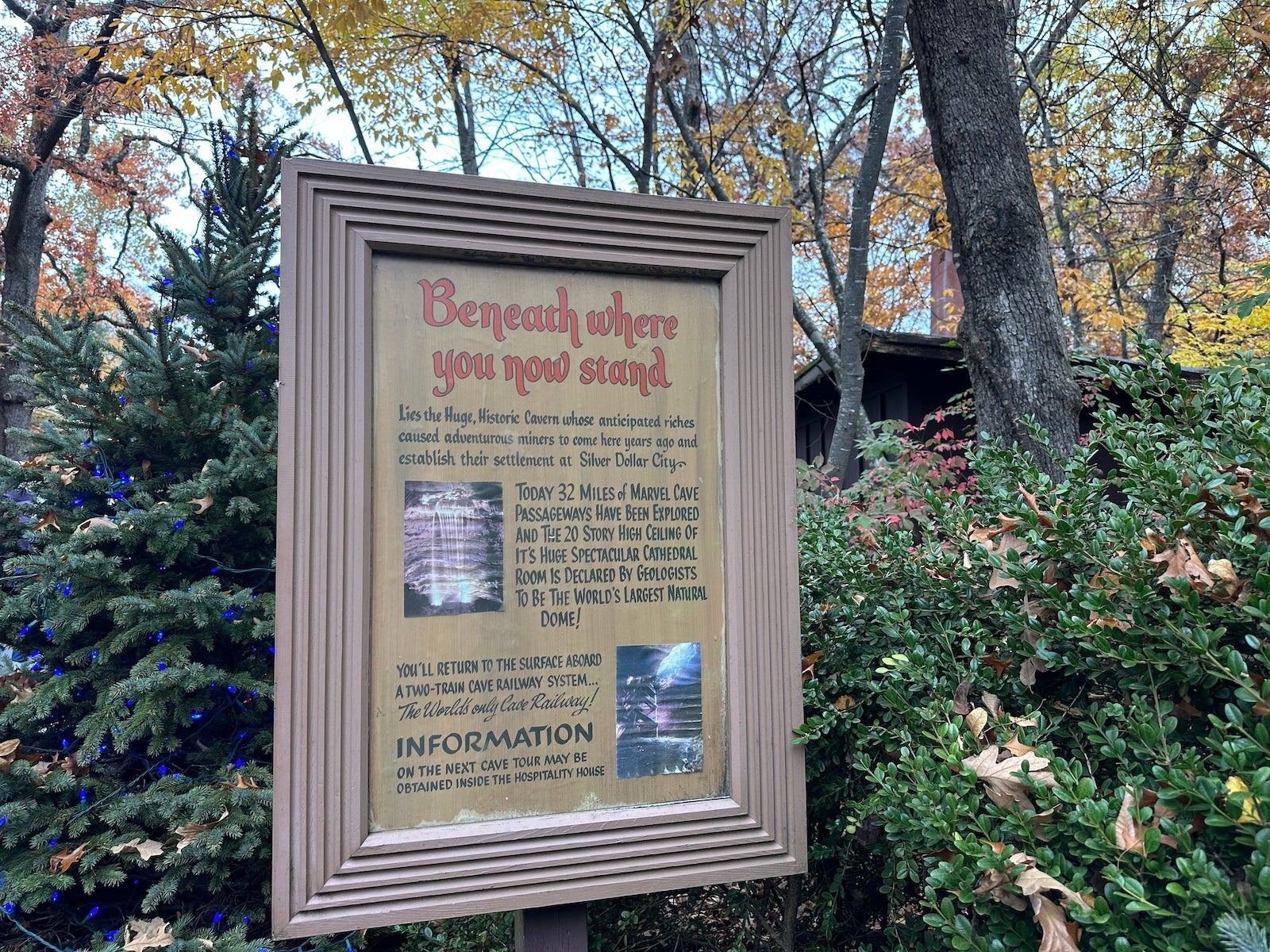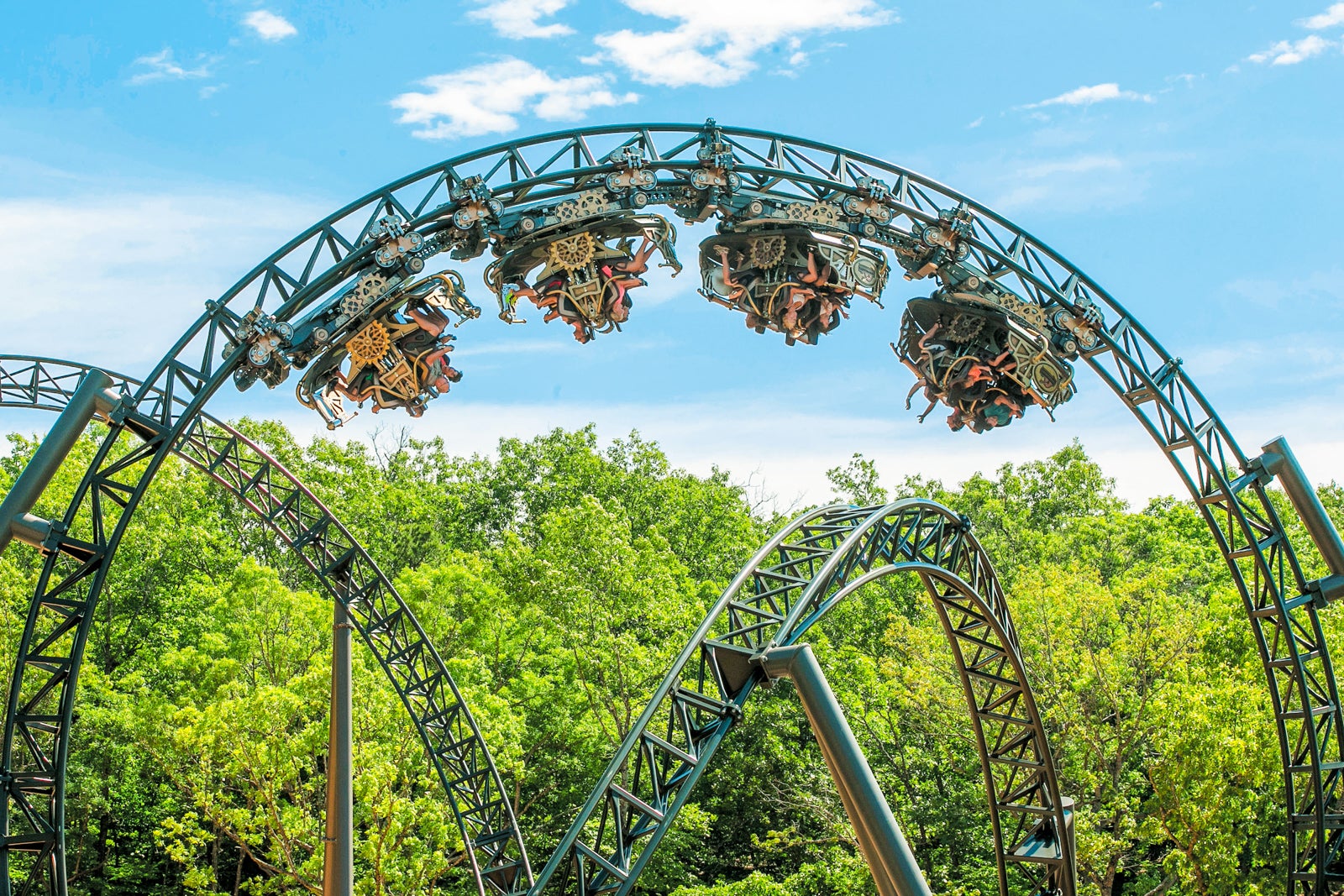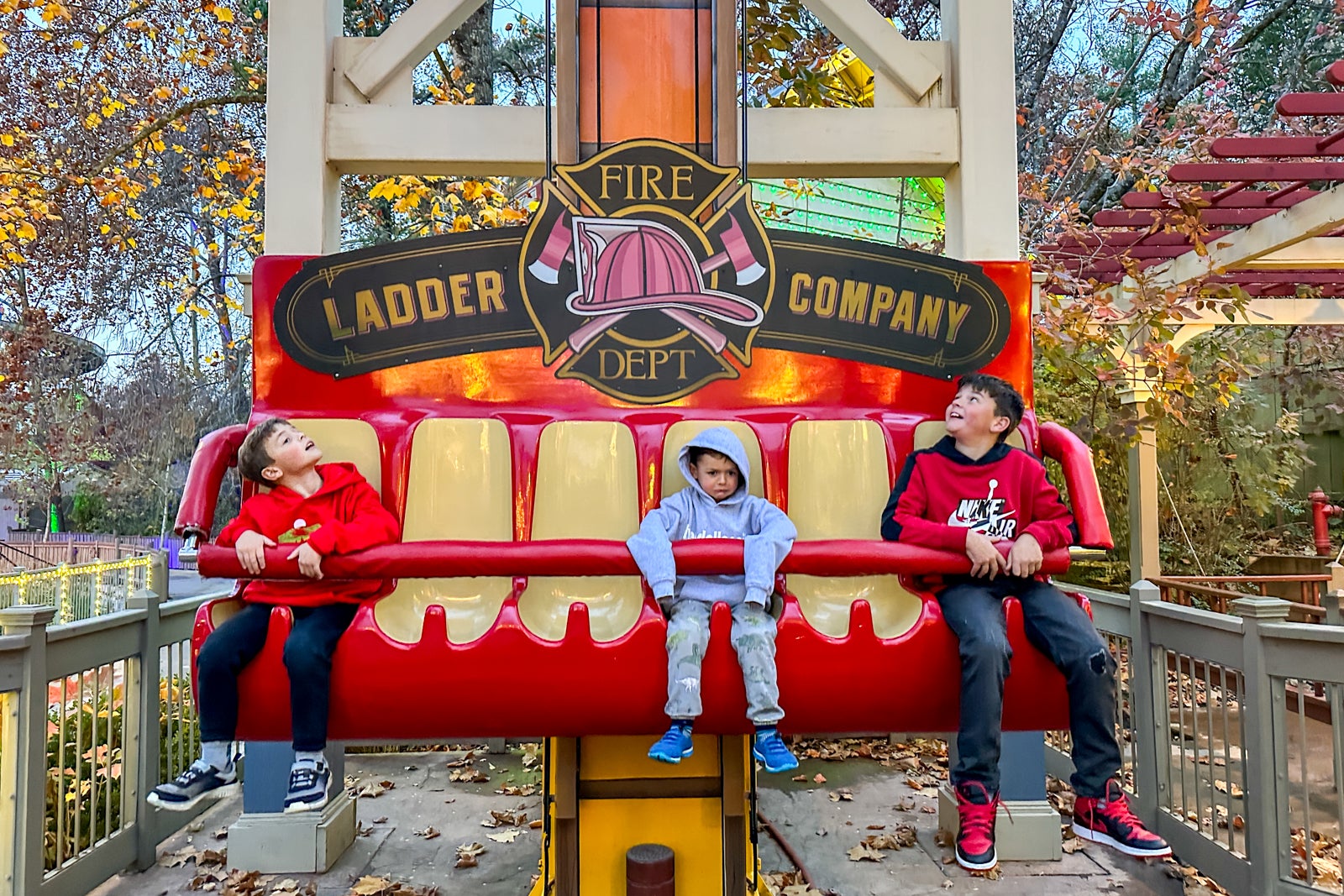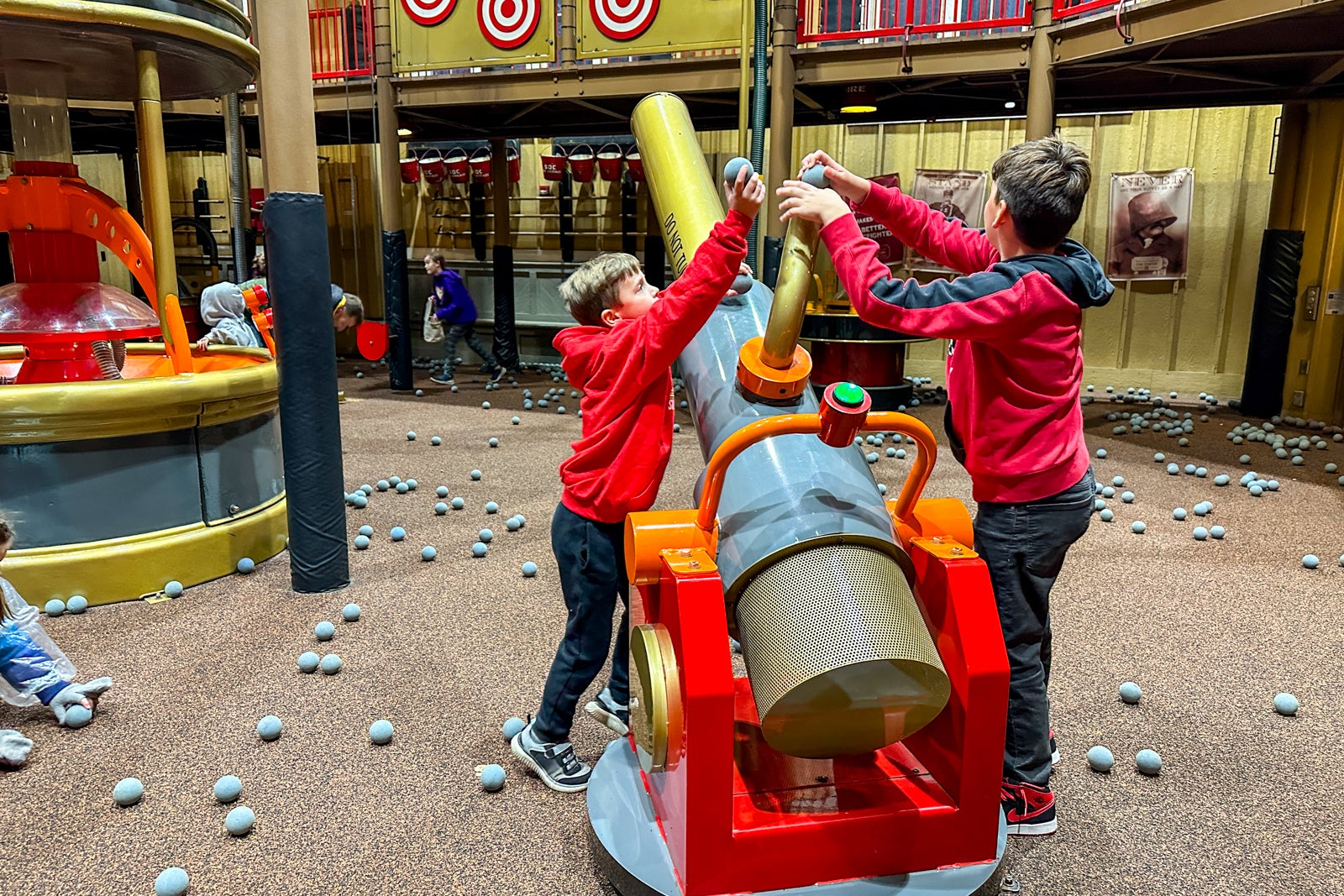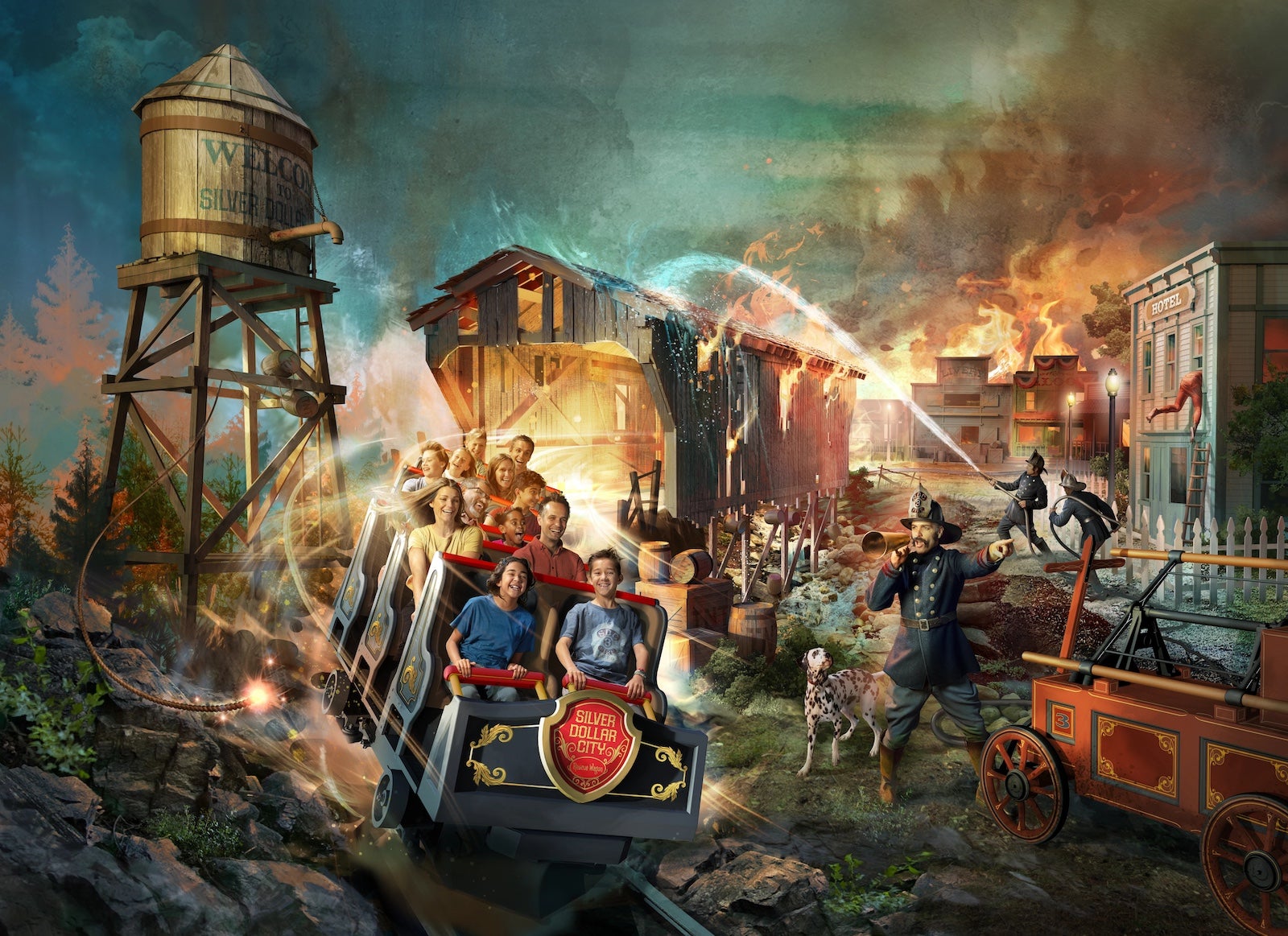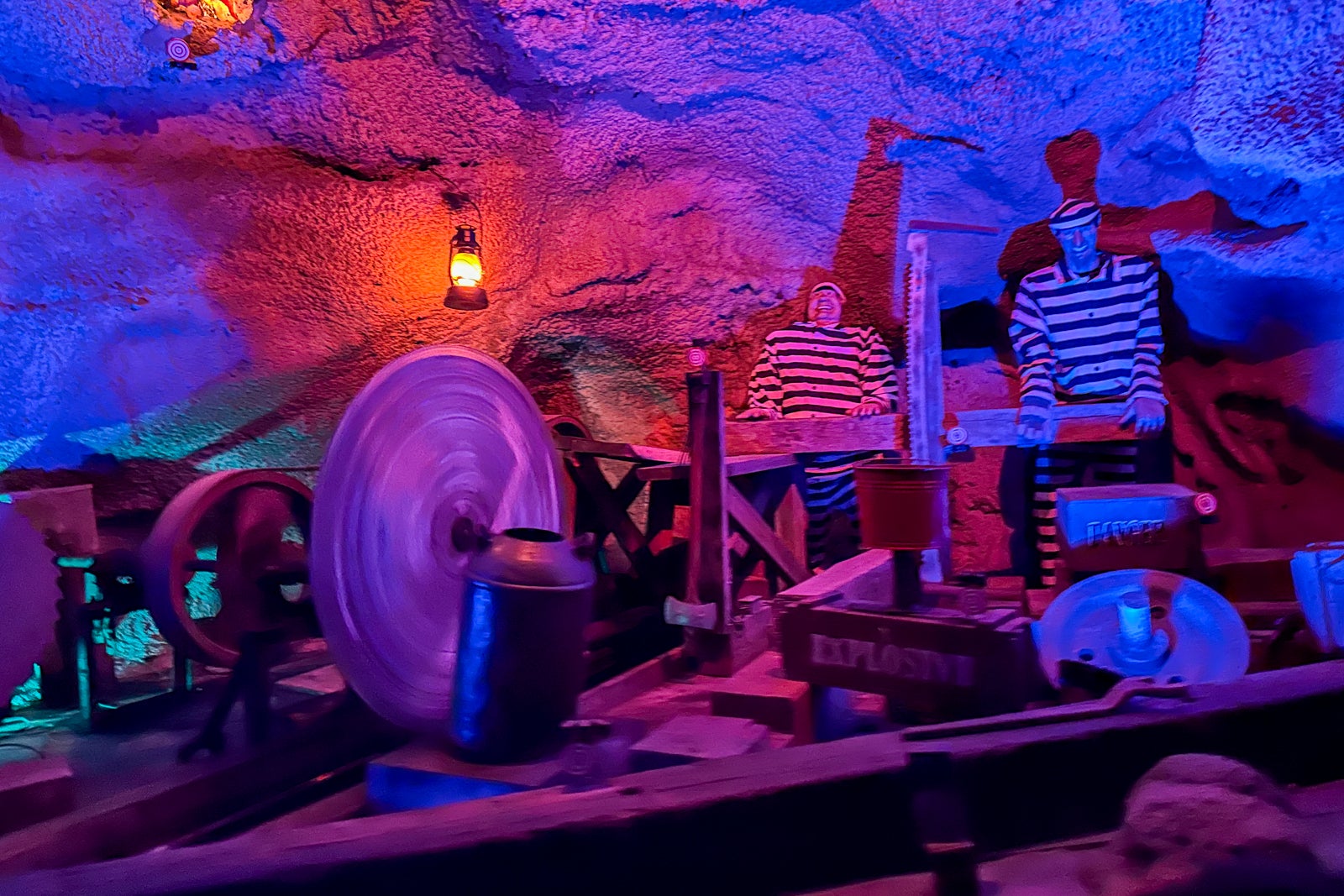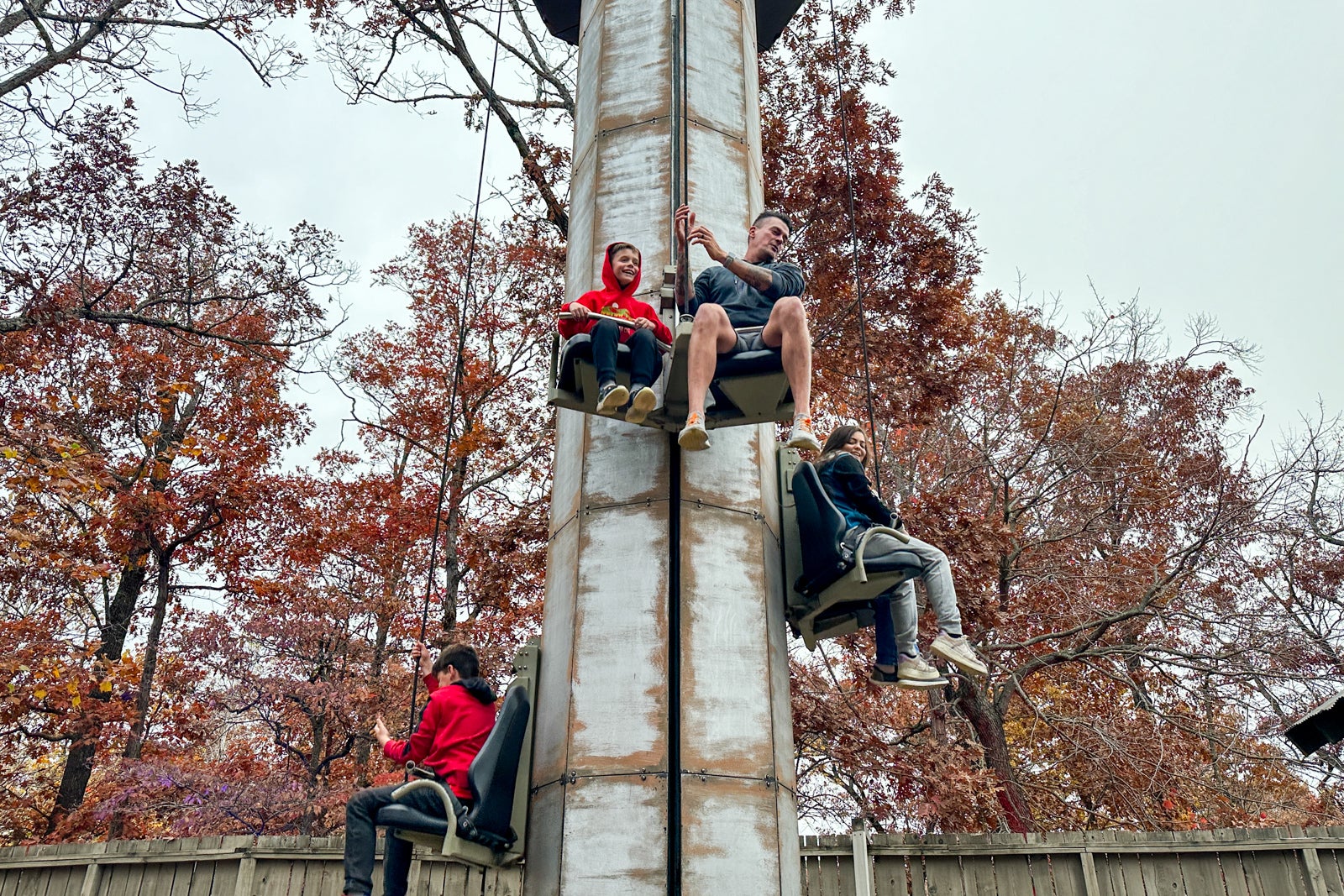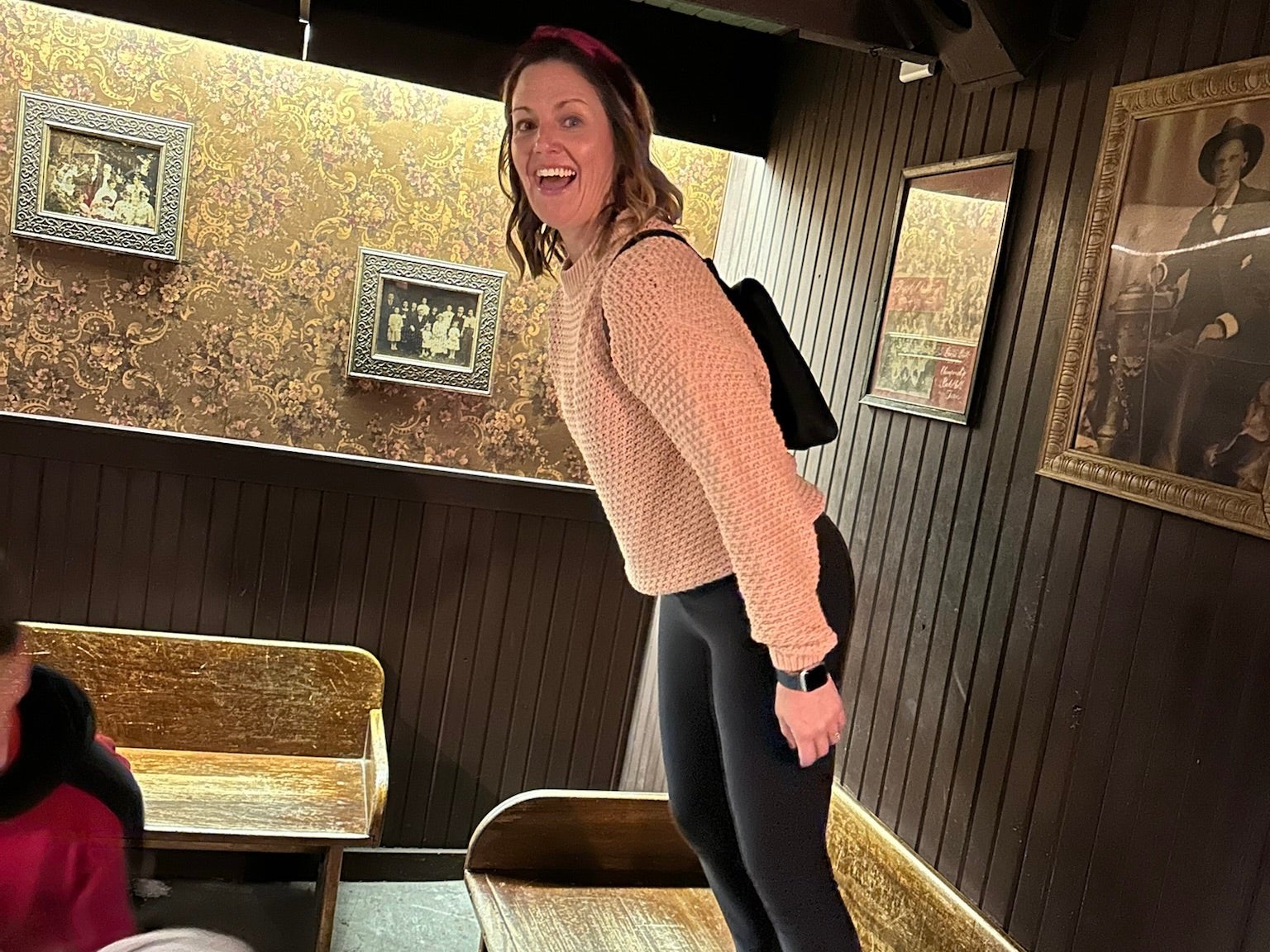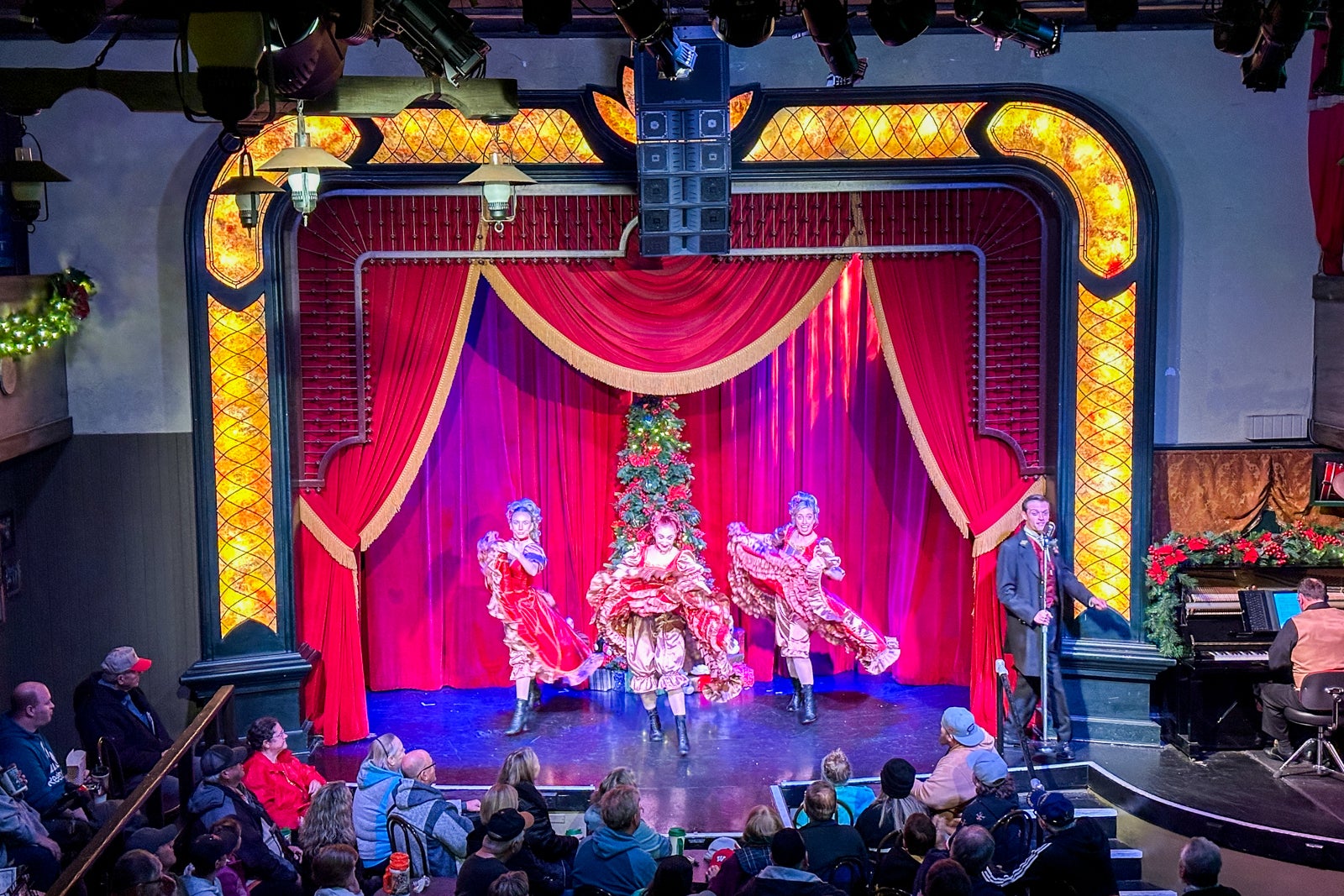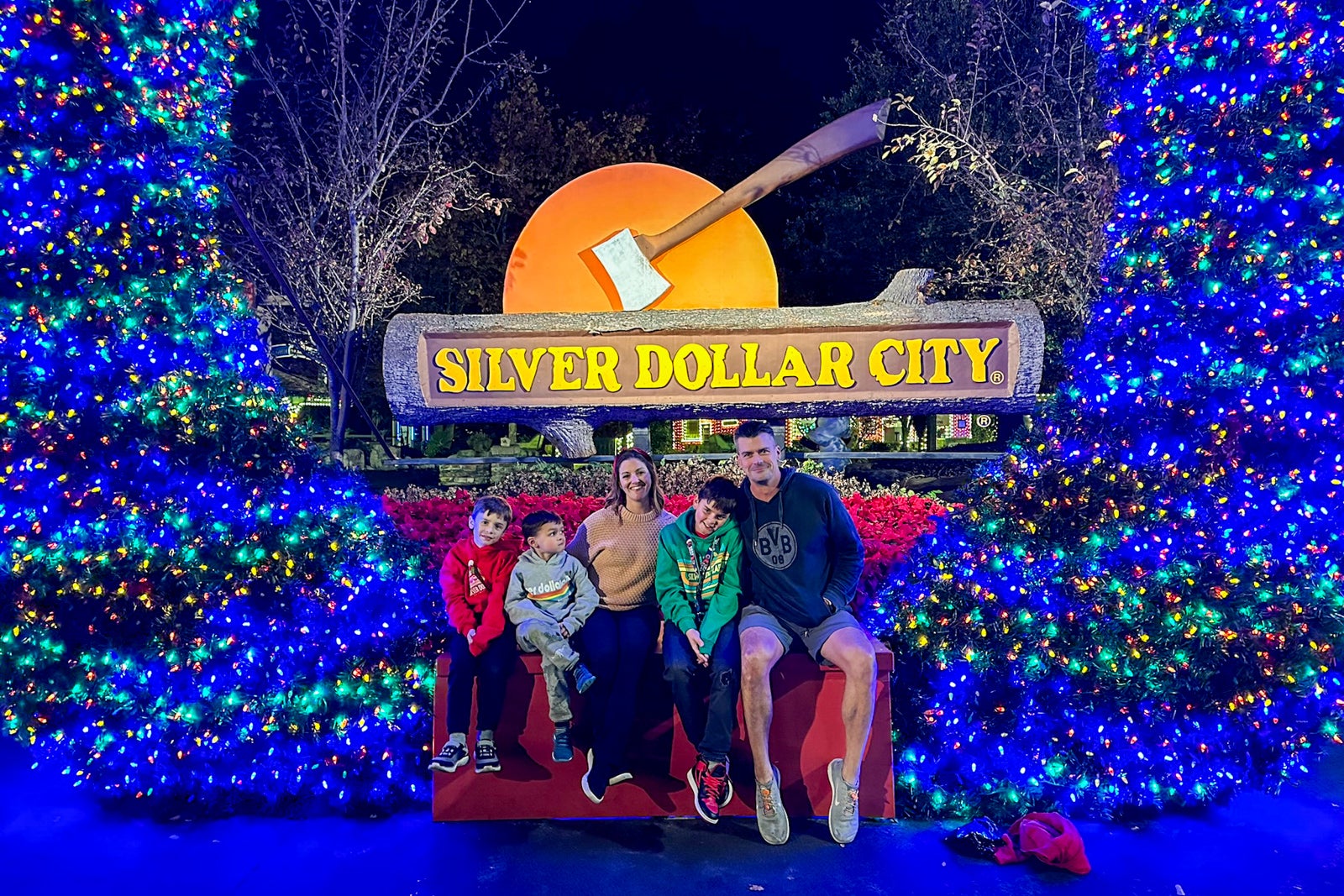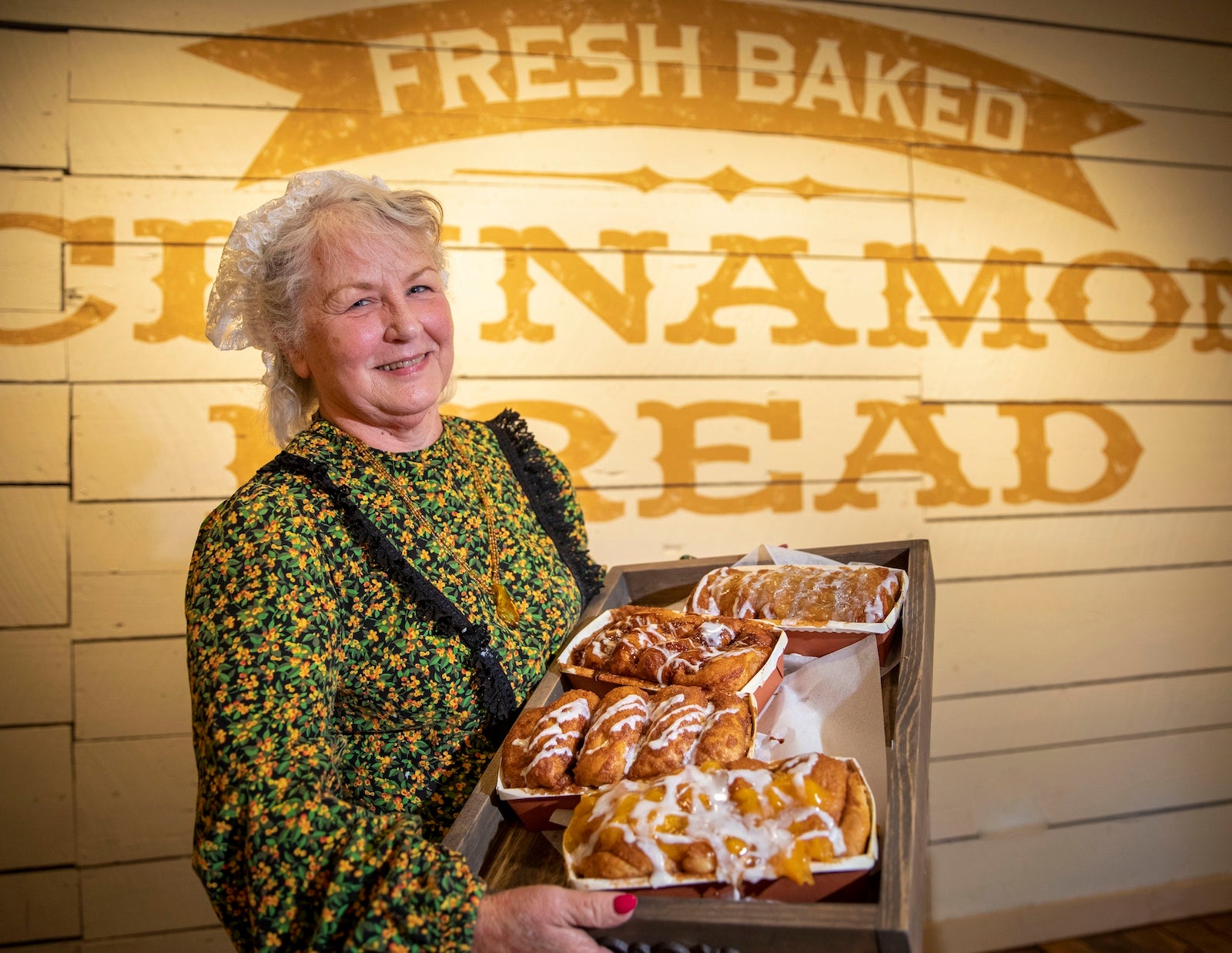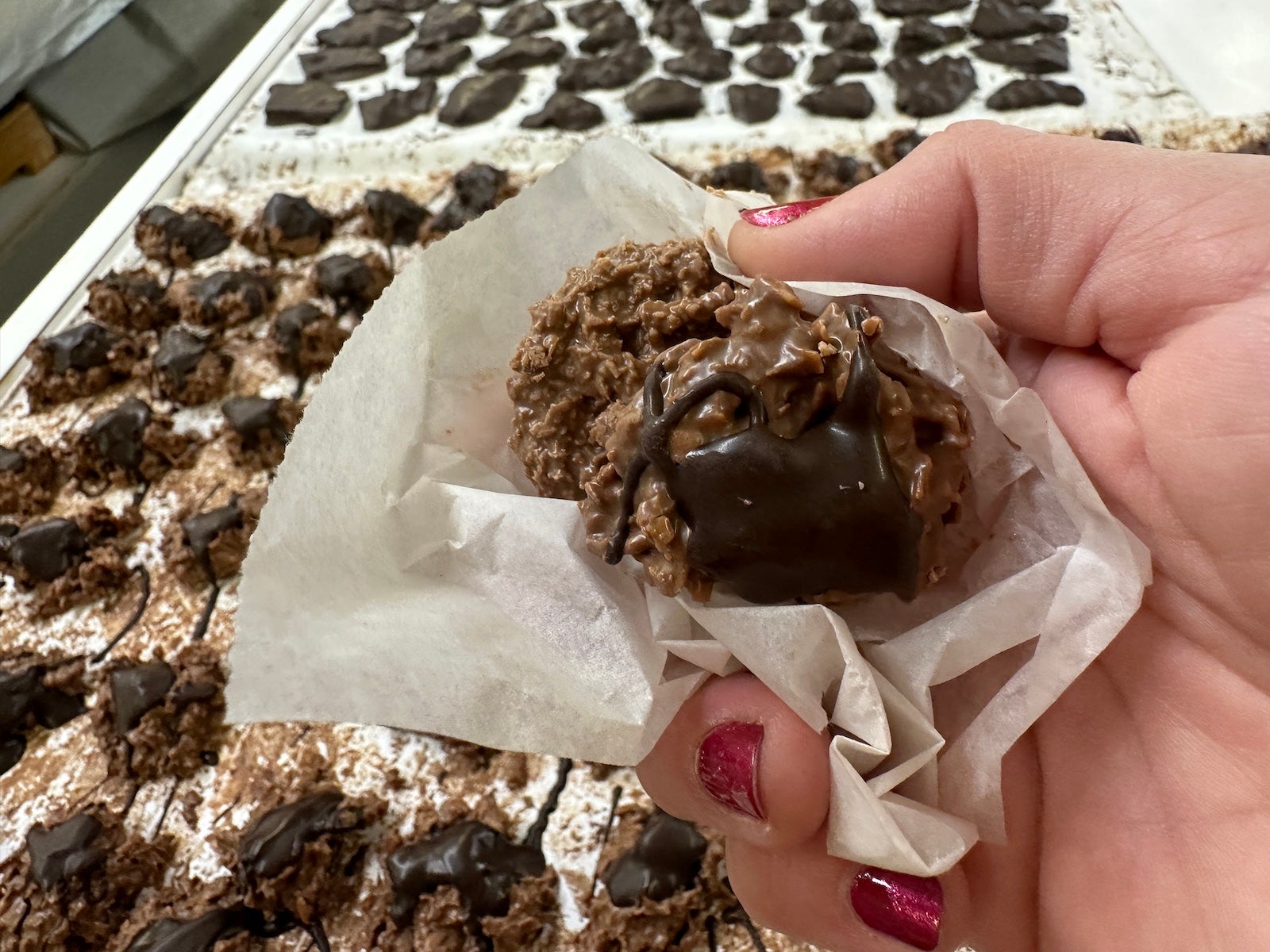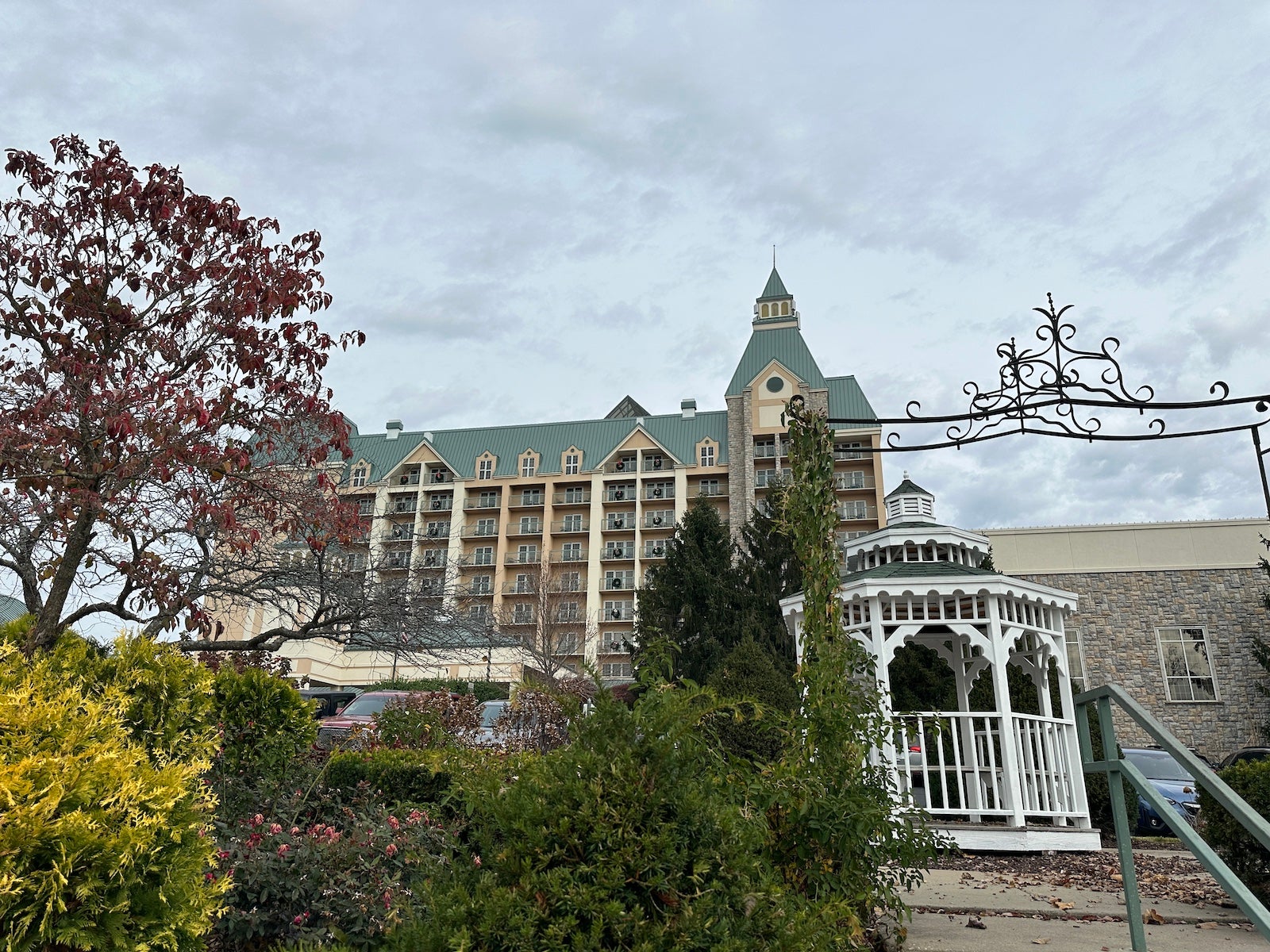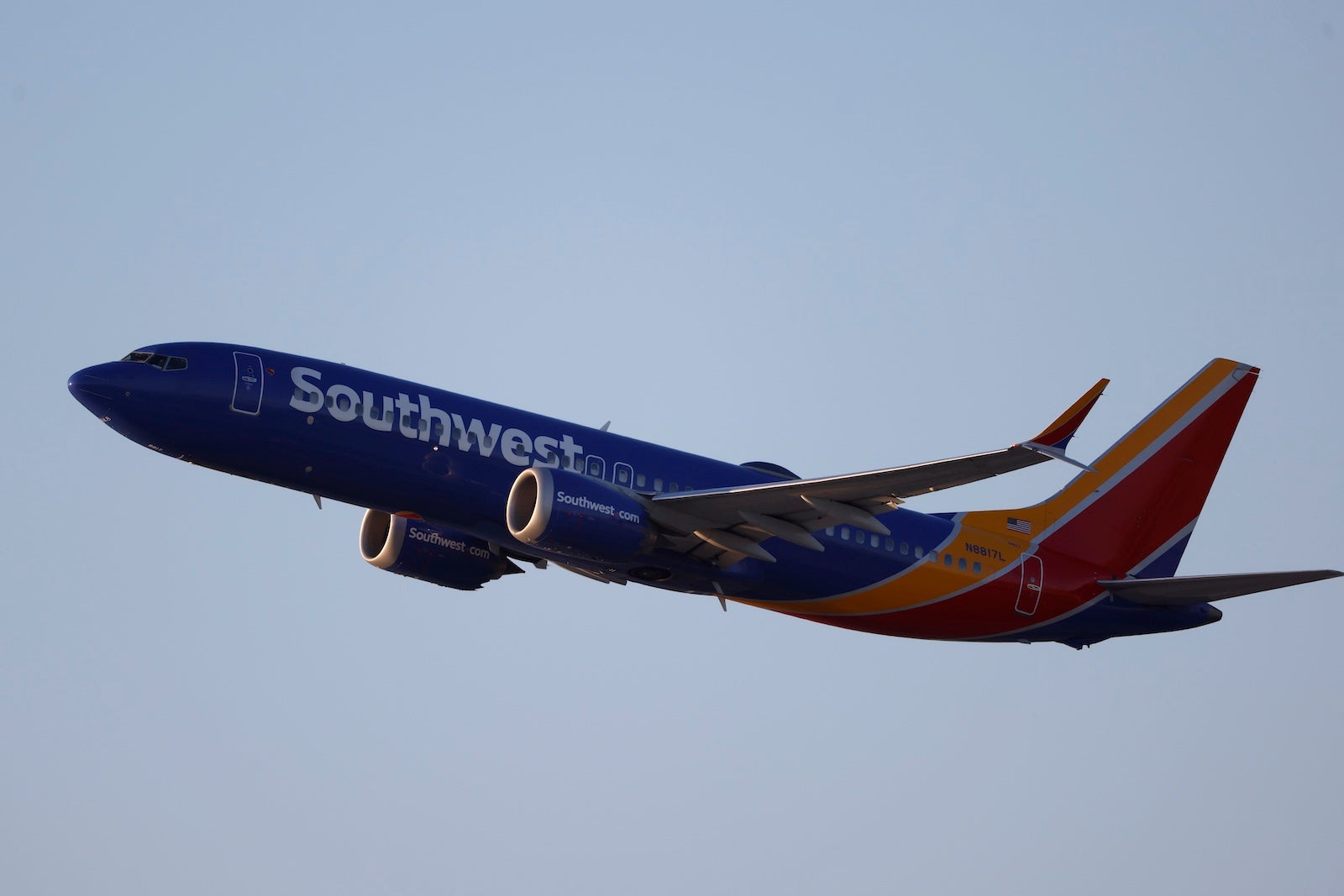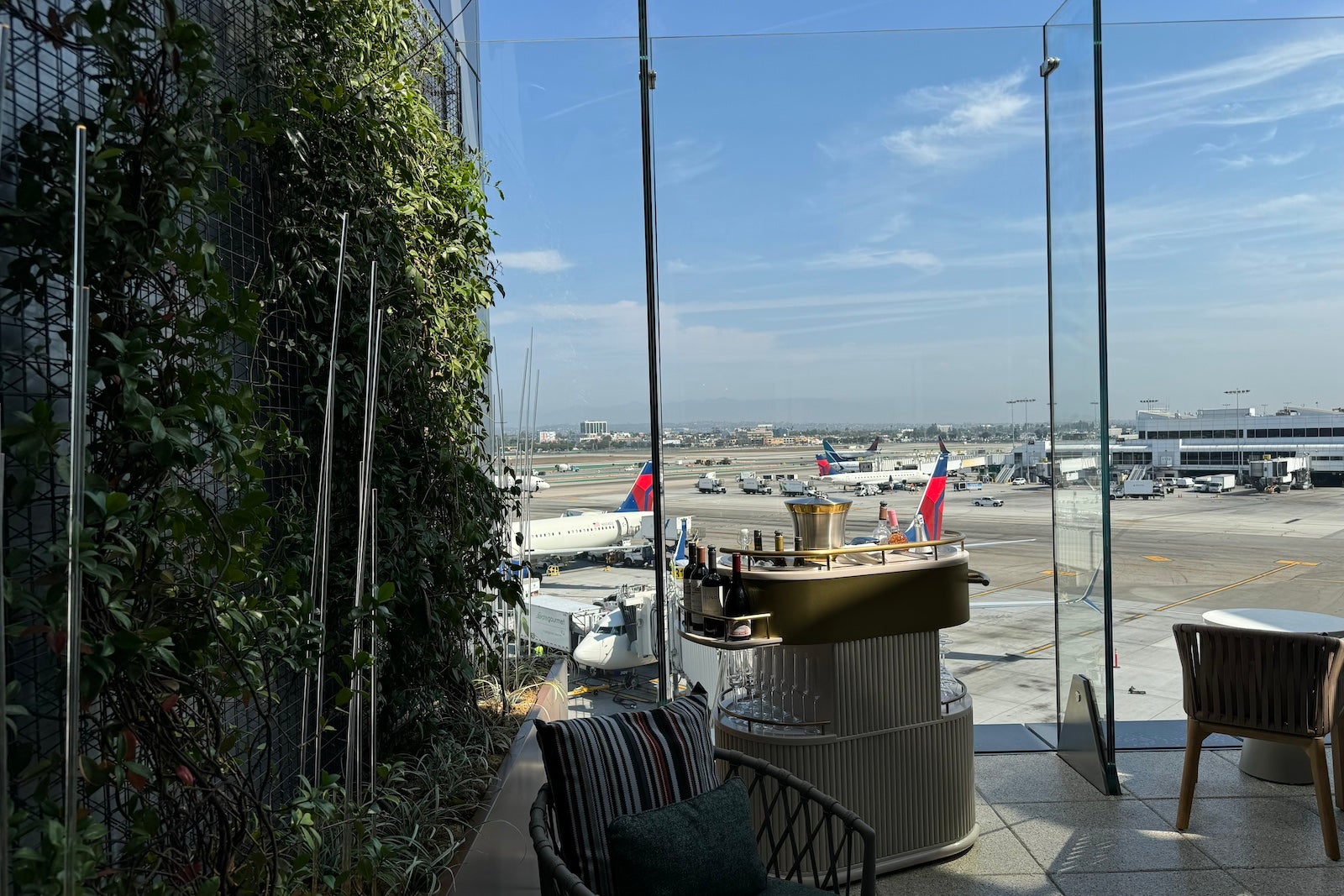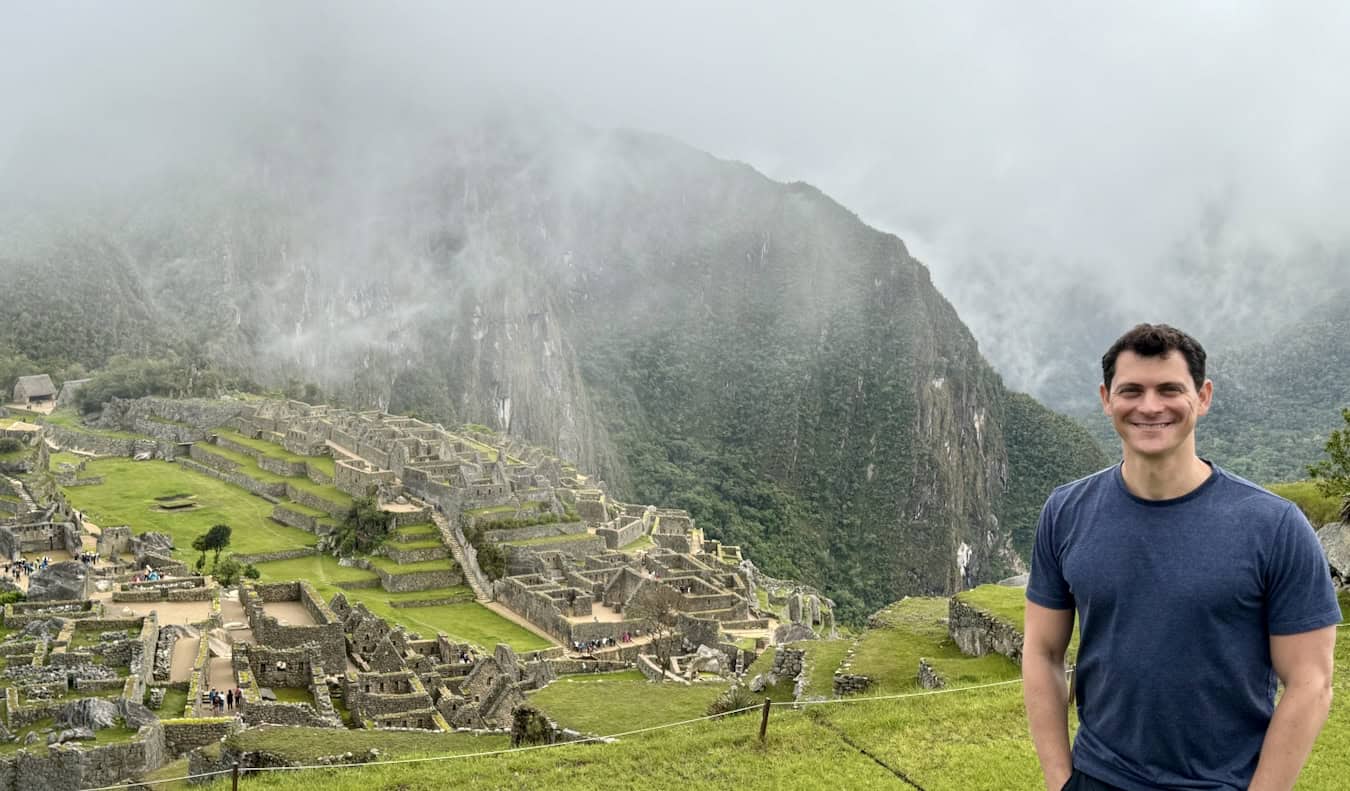Guide to visiting Silver Dollar City
My first visit to Silver Dollar City was not, in fact, my first visit to Branson, Missouri. I had been to the Ozark town once before, but I spent most of my time staying in a woodsy cabin and exploring the area’s natural beauty. This was many years ago, and I obviously missed the memo that there is so much more to Branson than beautiful mountain views.
Not only is Branson the self-proclaimed “Live Entertainment Capital of the World” with nearly 50 theaters, but also it is home to one of the most surprisingly delightful theme parks I’ve ever visited — Silver Dollar City. The roller coasters are intense, the food is finger-licking good, the people are as friendly as you’d expect (and I say that as a Midwesterner myself), the theming feels natural and authentic, and the park has a fascinating history.
Before you visit what is quickly becoming one of my favorite theme parks, here’s everything you need to know.
Silver Dollar City history
I wouldn’t usually dedicate this much space to a theme park’s history, but Silver Dollar City — perhaps more than any other theme park — is a direct product of its origins. The attractions, theming and spirit of Silver Dollar City are inextricably tied to the land where the park is built.
That “land” is the site of an 1880s frontier village called Marmaros, with a cave at the entrance, according to “The Story of Silver Dollar City” by Crystal Payton. Marble Cave, as it was then known, was being mined for guano (bat droppings), a popular ingredient in gunpowder. When the guano ran out, the town more or less emptied. William Henry Lynch bought the land and the cave in 1889.
Related: 11 regional theme parks that are closer to home but just as fun as the big names
Lynch’s plans for Marble Cave had nothing to do with bat droppings. His idea was to charge visitors to explore the cave. Lynch hired entertainers and tour guides and, at some point, changed the name to Marvel Cave. After a six-hour tour, the family served meals and offered lodging to visitors. Lynch died in 1927, but his family continued his successful cave tour operation until his children decided to retire in 1950.
The Lynch family turned the cave over to Hugo and Mary Herschend through a 99-year lease. The couple vacationed in the area and loved Marvel Cave. In April 1950, the Herschends and their two sons, Jack and Pete, took over the operations of Marvel Cave. Marvel Cave drew 8,000 visitors that summer, according to the Silver Dollar City website.
The Herschends immediately began making improvements and adding new offerings to draw in even more visitors. In 1954, when the Herschends learned of the area’s history as a frontier town, they decided to re-create the town as a tourist attraction. Thus, the idea for Silver Dollar City was born.

Daily Newsletter
Reward your inbox with the TPG Daily newsletter
Join over 700,000 readers for breaking news, in-depth guides and exclusive deals from TPG’s experts
Silver Dollar City opened in 1960; the name was inspired by the Herschend family’s plan to give guests silver dollars as change. The park opened with a blacksmith shop, a general store, an ice cream parlor, a doll shop and two 1880s log structures — a homestead and a church they call Wilderness Church. Employees dressed as Silver Dollar City citizens entertained and interacted with guests.
As time passed, more attractions and artisans were added to the park’s offerings. Fast forward about 60 years, and Silver Dollar City is still owned and operated by Herschend Family Entertainment, with brothers Jack and Pete Herschend at the helm. If the Herschend name sounds familiar, it is because they own and operate parks and attractions all over the country, including Dollywood.
Nowadays, Silver Dollar City honors the area’s history and pioneering spirit while doing what it has done for more than a century: entertaining and thrilling guests from all over the world.
You can still step inside the McAffie’s Homestead, and services are held inside the Wilderness Church every Sunday.
Employees are referred to as “citizens,” and each of the park’s 11 “districts” reflects its surroundings. Midtown is essentially the town square where you’ll find many shops and artisans. Rivertown is home to the park’s water rides, and The Grand Exposition is fashioned after a World’s Fair.
The park employs dozens of artisans who both demonstrate their talents for visitors and make their wares available for purchase. You can see everything from coffee mugs to candy to bed frames being built; you can even take them home with you if you wish.
As for the cave that started it all? You can still tour Marvel Cave daily. Tours take about an hour (rather than the six it would have taken a century ago), and a cable train will bring you back to street level. It’s just one of the many things that make Silver Dollar City special.
Silver Dollar City tickets
Silver Dollar City offers one-, two- and three-day tickets. Pricing starts at $89 for a one-day ticket, $109 for two days and $119 for three. Kids ages 4-11 and adults ages 65 and up can save $10 per ticket. Kids ages 3 and under are free.
If you plan to visit more than three days a year, you can save with a season pass. Pricing starts at $149 for unlimited visits to Silver Dollar City during the operating season, plus discounts and other perks.
Related: The best military travel discounts and perks for service members
Preschoolers can get a free annual pass through Silver Dollar City’s Adventure Pass program.
You can pay an additional fee for add-ons like the skip-the-line TrailBlazer pass and souvenir mugs with unlimited fountain drink refills during your visit.
Silver Dollar City rides and attractions
I visited Silver Dollar City with my husband and three kids, and I can say with certainty that there is something for everyone. My husband and our 10-year-old loved the high-flying coasters, like the 68-mile-per-hour Outlaw Run. They also loved PowderKeg, which launches from 0 to 53 miles per hour in less than three seconds. It is named for the powder mills where bat guano from Marvel Cave once was turned into gunpowder.
My younger sons loved The Fire District. This area has kid-friendly rides with a low minimum height requirement (most are 36 inches). Most of the rides in this area don’t require a parent to ride with a child, and it was fun getting to sit back and watch them.
There are also multiple indoor play areas in The Fire District. This includes a massive FireHouse Play Place where kids can practice their fire-fighting skills with foam balls that look like water droplets.
Come spring 2024, The Fire District will also be home to the all-new Fire in the Hole, a family-friendly indoor roller coaster. The original Fire in the Hole opened at Silver Dollar City in 1972. The ride told the (fictional) story of the day a group of vigilantes called the Baldknobbers tried to set fire to the real-life town of Marmaros that once stood where the theme park is now. The town banded together to battle the fire and save the town.
The new Fire in the Hole will likely tell a similar story but with an updated ride system and experience. It will be the park’s biggest investment in a single attraction when it opens this spring.
I’m always a sucker for the quirky attractions that make a park stand out from its competitors, and Silver Dollar City has plenty that fit that bill.
The Flooded Mine is a slow-moving boat ride where you shoot at interactive targets along the way. The best part of the ride is the nonsensical scoring system that somehow gave my five-year-old tens of thousands of more points than I earned.
I also loved working to pull myself to the top of The High-Low Silos, and seeing the park and surrounding area on the Frisco Silver Dollar Line Steam Train. Grandfather’s Mansion was another of my favorites. Each room has special effects like slanted floors and mirrored walls that made me feel like a kid again.
Things to know before visiting Silver Dollar City
The artisans and entertainers are their own attraction
1 of 2
Hillcreek Pottery at Silver Dollar City.TARAH CHIEFFI/THE POINTS GUY
I’ve already mentioned the artisans at Silver Dollar City, but it bears repeating that this is one of the things that makes the park so unique. We could pop into their shops, watch them at work and see the finished product. When my kids had questions for them, they were more than happy to impart their wisdom.
Seeing the Frontier Follies at the Silver Dollar Saloon was another highlight. Their singing and dancing were bolstered by their slapstick comedy, which kept my whole family entertained.
There’s also a water park
Silver Dollar City has an adjacent water park called White Water. The water park opens in late May and closes in early September. Tickets start at just $49 per person, with a discount for guests ages 4-11 or those 65 and older.
Visit during the park’s special events
Silver Dollar City hosts special events throughout the year, like a Bluegrass & BBQ Festival, a Halloween-time Harvest Festival and An Old Time Christmas.
Related: Not your average sleigh ride: 9 can’t-miss theme parks during the holidays
My family visited during what they call “An Old Time Christmas,” and the transformation was magical. The park was illuminated with more than 6.5 million lights, and there were stage productions of classic holiday stories like Charles Dickens’ “A Christmas Carol.” There was also an eight-story-tall Christmas tree with dancing lights synchronized to music, a nightly parade, and specialty food and drink items.
Parking is free
I was shocked when I found out parking is free at Silver Dollar City, mostly because that is hard to come by at a theme park these days. You can pay a fee for preferred parking if you want a shorter walk, but it’s unnecessary. No matter where you park, you can access a tram or shuttle bus that will drop you off at the front gates.
You can use parent swap for rides
If you have kids who are too young (or too scared) for roller coasters, you can tell the greeter at the ride entrance that you want to use rider swap. One parent can wait with the child(ren) while the other rides; then, you can “swap,” so the other parent can ride.
Use TrailBlazer to skip the lines
TrailBlazer is Silver Dollar City’s version of a skip-the-line pass. You can purchase this as an add-on when you buy your tickets online or at the gate. Pricing starts at $49 per day for use at eight select rides in a day or $79 for unlimited uses. With TrailBlazer, you enter through a separate queue for a shorter wait on some of the park’s most popular attractions.
Download the Silver Dollar City app for ride times and more
Silver Dollar City has an official app to see wait times, get directions around the park, see show schedules and more. You will want to download the app before your visit so you can use it while you are in the park.
There are some foods you can only get at Silver Dollar City
Silver Dollar City doesn’t skimp when it comes to its food offerings, and there are a few must-try dishes. One of these you will be able to smell from a mile away — Clara Belle’s Cinnamon Bread. This is the quintessential Silver Dollar City treat, and getting Starbucks coffee at Clara Belle’s is almost as sweet as the icing on top of the world-famous bread.
Related: 13 absolute best things to eat that you can only get in US theme parks
Silver Dollar City also has a homemade candy shop called Brown’s Candy Factory. They are probably best known for their fudge and peanut brittle (the latter has a highly guarded secret recipe), but they also make various flavored clusters and other confections. You can view daily candy-making demonstrations while you ponder which treats to purchase.
There are also a couple of spots where you can get tasty meals cooked in giant cast iron skillets. Buckshot’s Skillet Cookery serves a Family Feud Succotash skillet — a play on the feud between the Hatfields and McCoys.
Hotels near Silver Dollar City
Silver Dollar City has no on-site hotels, but there is a campground that offers tent camping, RV sites and log cabins. If you stay at the campground, you can use the park’s complimentary shuttle service to get back and forth. There are plenty of nearby hotels, as well. Here are a few of my favorites:
- Chateau on the Lake Resort, Spa and Convention Center: This lakeside property is farther from town, but the silver lining is the peace and quiet you get from being removed from the busier part of Branson.
- Big Cedar Lodge: Owned and operated by the founder of Bass Pro Shops, Big Cedar Lodge has various accommodation types and outdoor activities.
- The Ozarker Lodge: This modern motor lodge offers a boutique hotel experience less than 15 minutes from Silver Dollar City.
- Hilton Promenade at Branson Landing: This property is adjacent to Branson’s popular shopping and dining complex. Some rooms have a view of the daily fountain shows at Branson Landing.
Bottom line
I can have fun anywhere, especially at a theme park, so I knew I would have a good time at Silver Dollar City. However, I didn’t expect to be so thoroughly impressed by the authenticity, storytelling and history of the park — not to mention the thrilling rides and friendly “citizens.” Knowing what I know now, I’ll never make the mistake of going to Branson and skipping Silver Dollar City again.
Related reading:

